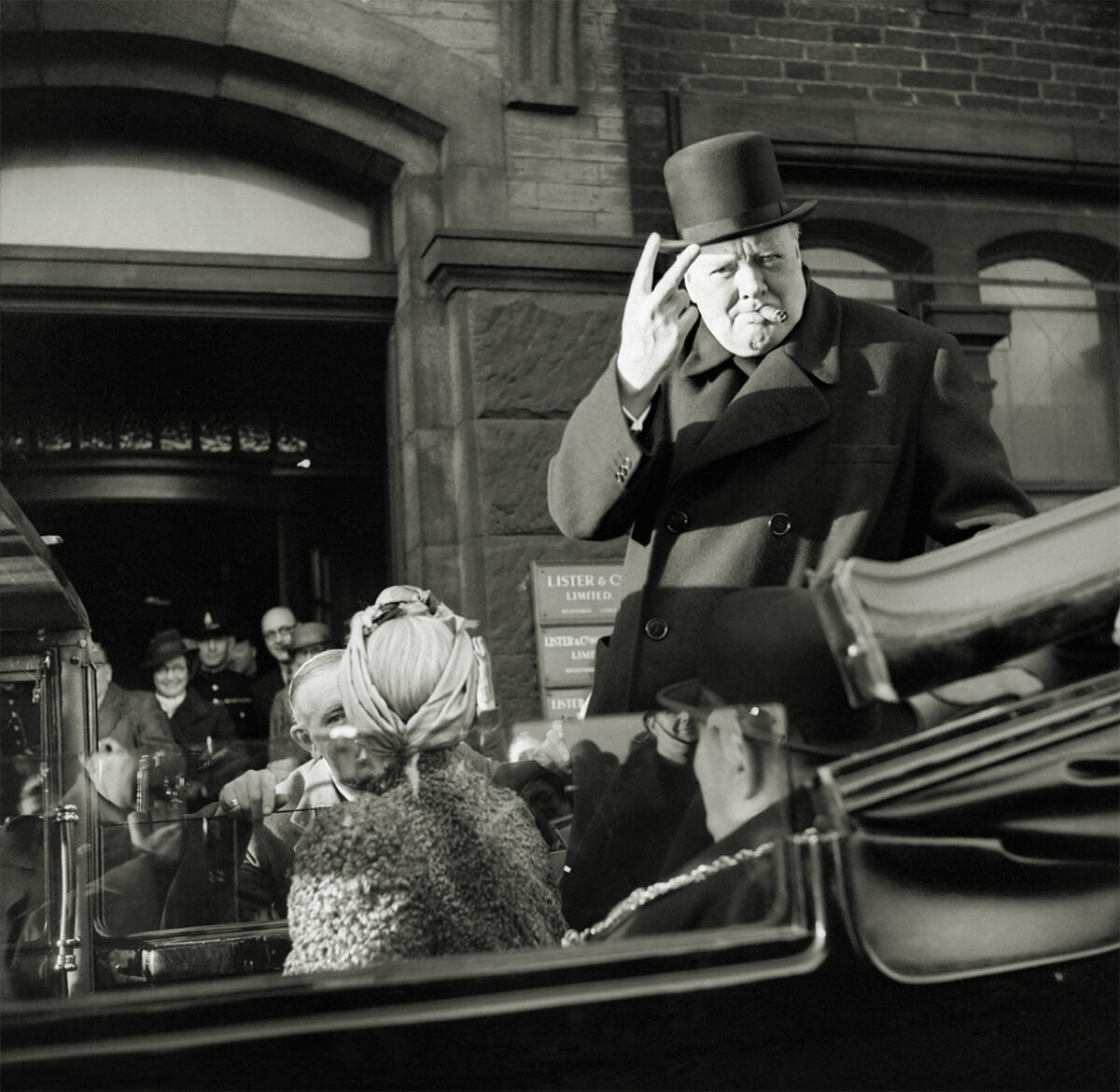In January 1941 Victor de Laveleye, a Belgian refugee and BBC broadcaster, popularized the wartime slogan “V for Victory.” Laveleye suggested the letter “V” as a rallying symbol for his Belgian listeners, as it stood for victoire (“victory”) in French and vrijheid (“freedom”) in Flemish. The slogan caught on, inspiring posters, graffiti and the classic “V for Victory” hand gesture, with palm facing out and index and middle fingers extended upward in imitation of the letter.
Perhaps no one is more closely associated with the symbol than Prime Minister Winston Churchill, who picked up on the slogan that summer and started using the related gesture in public — though he got it backward, with palm facing inward, the first few times he tried it. While innocuous to international eyes, to the British the “V sign” with an inward-facing palm is as rude a gesture as the middle finger.
Historians disagree on the meaning and even name of this V sign (aka “two-fingered salute” or “forks”), but it’s recognized throughout the former British empire as a lewd sexual reference. Documentary film evidence dates the gesture as far back as 1901, though there was apparently a class divide in its use. The aristocratic Churchill, born in his family’s ancestral country manse of Blenheim Palace, only learned his inward-facing palm gesture was offensive when told by his subordinates.
One popular origin story dates back to the Hundred Years’ War (1337-1453). According to a contemporary chronicle, the power of the longbow so frustrated the French that they decreed any captured English bowmen would have their bow-drawing fingers chopped off, preventing any future archery. Thus, at victories like Agincourt, defiant English archers purportedly shot the gesture at retreating Frenchmen as a taunt, that in victory they still had their fingers.
While an intriguing story, that same chronicler specifically noted the French would cut off three fingers; with a draw strength of up to 100 pounds, the longbow could not be drawn using only the index and middle fingers.
Alas, the origin is probably more prurient than patriotic, and it’s for the best Churchill eventually flipped his iconic “bird.”
historynet magazines
Our 9 best-selling history titles feature in-depth storytelling and iconic imagery to engage and inform on the people, the wars, and the events that shaped America and the world.


